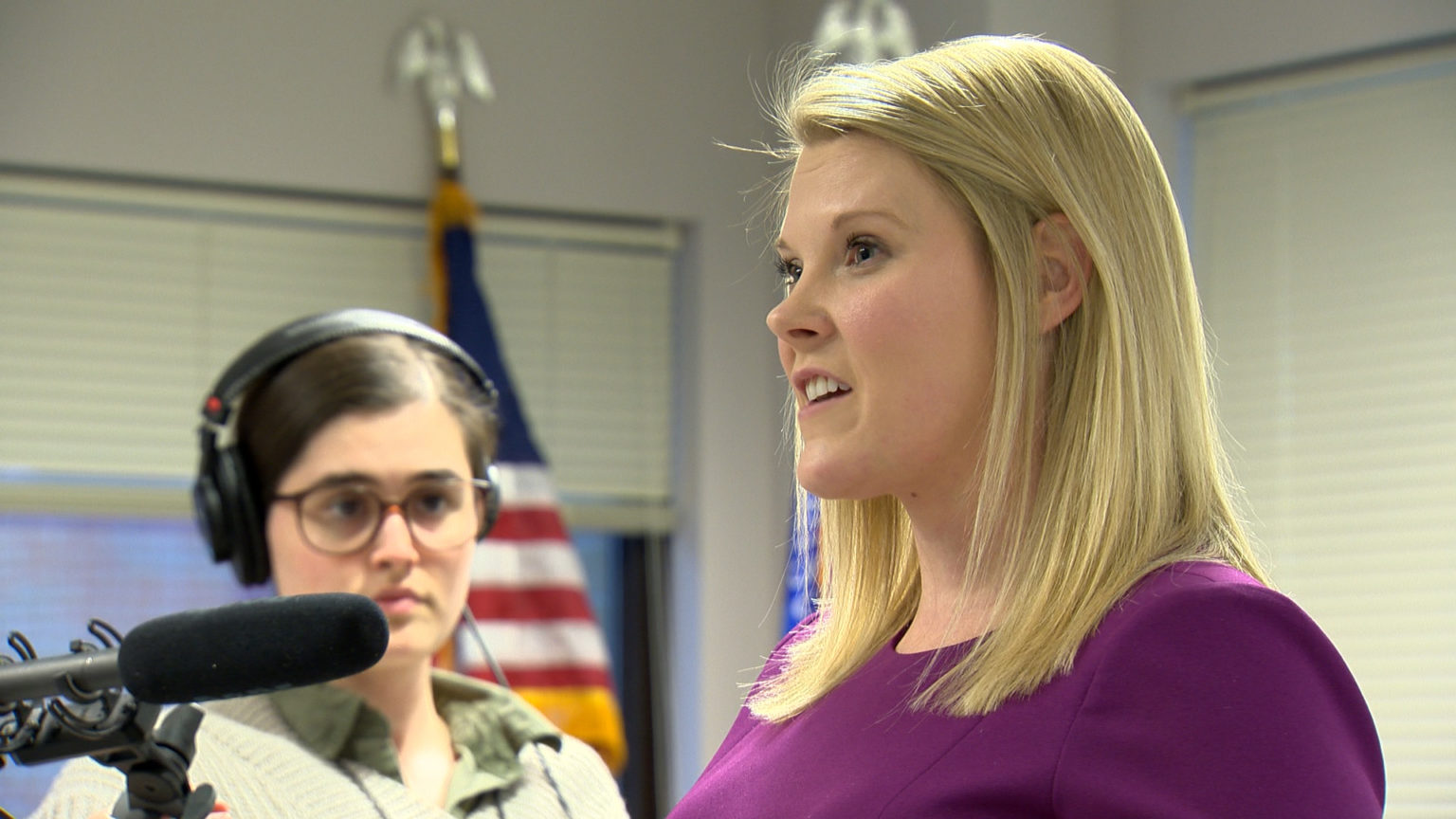Elections Commission: No Competing Ballots in April Election
The Wisconsin Elections Commission voted unanimously to send only one ballot to a majority of absentee voters in the April general election. To comply with federal law, overseas voters will still receive two ballots in April, but most absentee voters will only receive a single ballot with all races.
February 12, 2020 • Northern Region

Commission administrator Meagan Wolfe explains the need for two ballots to the press.
The Wisconsin Elections Commission voted unanimously to send only one ballot to a majority of absentee voters in the April general election.
The commission was initially going to send two ballots: an “A” ballot containing only federal candidates, and a “B” ballot with federal, state and local candidates. In reversing course, the commission said they wanted to avoid confusion among voters.
“Nothing about this makes sense,” said commissioner Ann Jacobs. “It is going to engender chaos for the clerks, confusion for voters, fear for voters, and I think that it is simply too close to the election to do any of this.”
The need for two ballots stemmed from a federal law that requires overseas and military voters receive absentee ballots at least 45 days before a federal election.
“The challenge when there is a federal and state contest is the state deadline of 47 days prior to the election and the federal deadline for military and overseas voters of 45 days–that deadline is before we even know who is going to be on the rest of the ballot for state and local contests,” commission administrator Meagan Wolfe said.
The elections commission this year broadened that group of voters who receive an early ballot to include all those who applied for an absentee ballot before the 47 day deadline. This caused some confusion with absentee voters in the February 7th Congressional District primary, some of whom received two ballots for the first time.
“There’s a lot of confusion over that and we’ve gotten a lot of phone calls,” Superior municipal clerk Terri Kalan said during an interview with Here & Now.
The commission said Wednesday when it came to the April general election it wanted to return to a previous one-ballot practice with which voters were familiar.
“We cannot change an interpretation–that is at the heart of the ability to issue ballots and to properly count them and to educate voters–just on the fly,” Jacobs said.
To comply with federal law, overseas voters will still receive two ballots in April, but most absentee voters will only receive a single ballot with all races. The February primary will stay as-is according to the commission, which declined to change how clerks handle voters returning both the “A” and “B” ballots.
“Our direction from the state is if they return ballot ‘B’, ballot ‘A’ is rejected. We don’t open it, we don’t look at it, so we won’t know,” Kalan said.
The best guidance for those receiving two absentee ballots, according to the elections commission, is to vote in the federal election on both ballots and let the municipal clerk sort out the right one to be counted.
 Passport
Passport











Follow Us